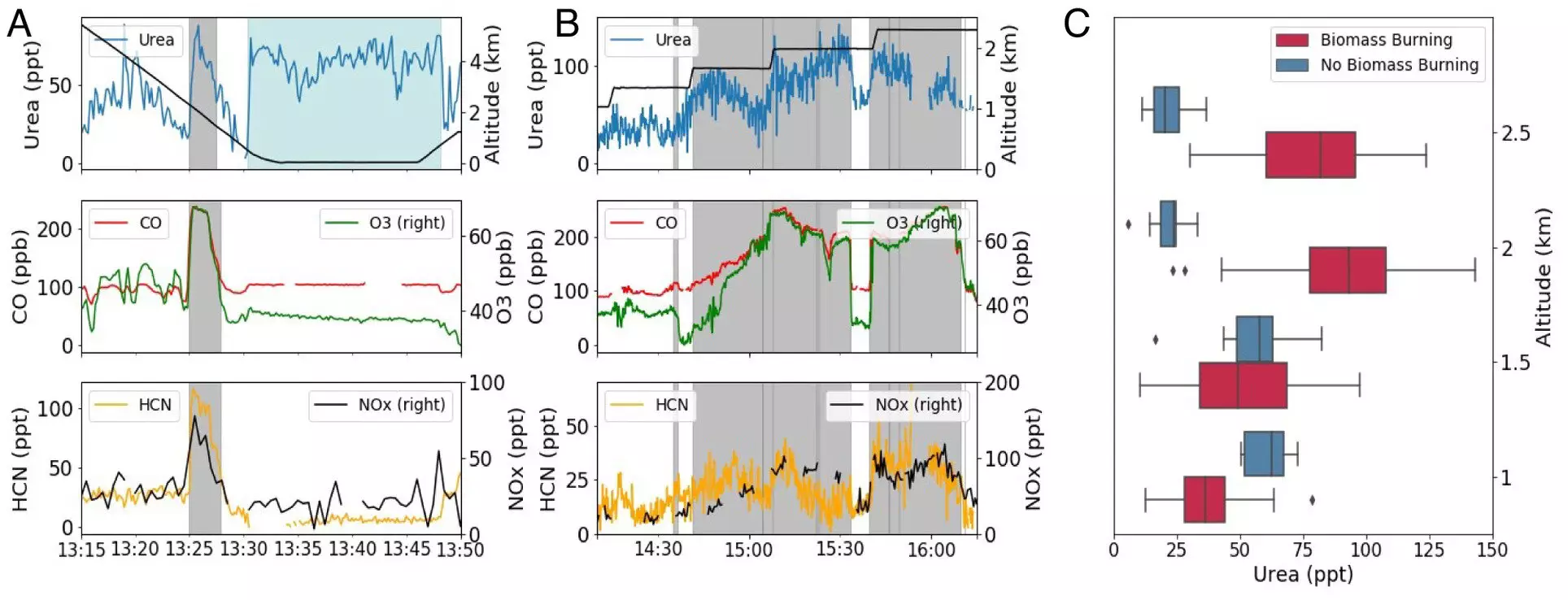New research by scientists at The University of Manchester suggests that areas of the ocean that are rich in marine life are having a bigger impact on our ecosystems and the climate than previously thought. The research has identified the primary source of urea, a nitrogen-rich compound vital for the growth and development of living organisms, to be the ocean. The observations reveal an important but unaccounted for source of reduced nitrogen and offer the first-ever observations of gaseous urea in the air. The findings could have far-reaching consequences for marine productivity and climate stability.
Observations and Implications
The research, published in the journal Proceedings of the National Academy of Sciences, reveals that urea can be transported over long distances through the atmosphere to benefit other environments that may be nutrient-deficient. The observations of gas-phase urea in the atmosphere were collected over the North Atlantic Ocean using the FAAM Airborne Laboratory, a UK airborne research facility managed by the National Centre for Atmospheric Science (NCAS) and owned by UK Research and Innovation and the Natural Environmental Research Council. Measurements made during these flights provide detailed data on the composition and properties of aerosols and gasses in the atmosphere. Scientists from The University of Manchester and NCAS have identified unique species important to the marine reduced nitrogen cycle, including the first observations of gas-phase urea in the atmosphere.
The researchers say that the findings have significant implications for our understanding of the nitrogen cycle and calls for a revision of current models. The nitrogen cycle is the process during which nitrogen moves through both living organisms and physical environments including the atmosphere, soil, water, plants, animals, and bacteria. It is central to the composition of the Earth System and changes of the natural environment through interactions such as aerosol formation, ozone production, and as a supply of essential nutrients to living organisms.
Emily Matthews, Atmospheric Scientist at The University of Manchester, said, “Our observations provide new insights into the complex interactions between the atmosphere, ocean, and ecosystems. Understanding the behavior and impact of urea in the atmosphere is vital for advancing our knowledge of how chemicals and substances are transferred through our environment and can help us to inform strategies to address climate change.”
The ocean plays an important role in maintaining a stable climate through biological activity occurring near the surface of the water and contributes to oceanic uptake of carbon dioxide. The nitrogen cycle is central to the composition of the Earth System, and changes in the natural environment through interactions such as aerosol formation, ozone production, and as a supply of essential nutrients to living organisms. The research findings represent an important pathway for long-range transport of nitrogen to fertilize nitrogen-poor regions of the surface ocean. Revising this knowledge better helps to understand how the ocean biosphere will respond to future changes.



Leave a Reply